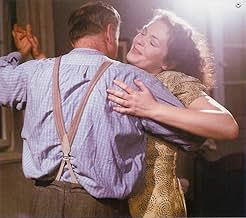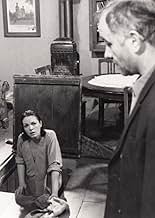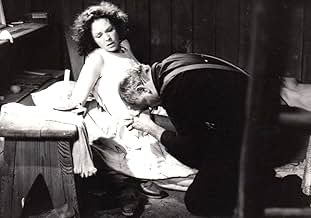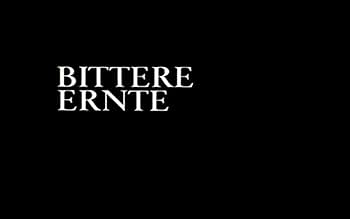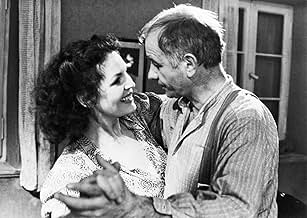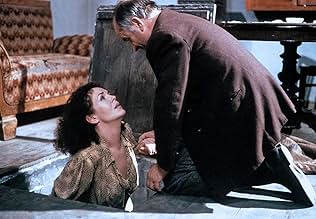Adicionar um enredo no seu idiomaIn the winter of 1942-43, a Jewish family leaps from a train going through Silesia. They are separated in the woods, and Leon, a local peasant who's now a farmer of some wealth, discovers th... Ler tudoIn the winter of 1942-43, a Jewish family leaps from a train going through Silesia. They are separated in the woods, and Leon, a local peasant who's now a farmer of some wealth, discovers the woman, Rosa, and hides her in his cellar. Leon's a middle-aged Catholic bachelor, tormen... Ler tudoIn the winter of 1942-43, a Jewish family leaps from a train going through Silesia. They are separated in the woods, and Leon, a local peasant who's now a farmer of some wealth, discovers the woman, Rosa, and hides her in his cellar. Leon's a middle-aged Catholic bachelor, tormented by his sexual drive. He doesn't tell Rosa he's seen signs her husband is alive, and he... Ler tudo
- Direção
- Roteiristas
- Artistas
- Indicado a 1 Oscar
- 2 vitórias e 3 indicações no total
- Anna
- (as Käthe Jaenicke)
- Cybulkowski
- (narração)
- Herr Eckart
- (narração)
- Herr Rubin
- (não creditado)
- Walden
- (não creditado)
- Tuva Rubin
- (não creditado)
- Alte Frau
- (não creditado)
- Frau Kaminska
- (não creditado)
- SS-Mann
- (não creditado)
Avaliações em destaque
Adapted from Hermann H. Field novel centers on an old single impotent Austrian farmer, Leon Wolny (Armin Mueller-Stahl) during WWII, secluding a middle aged Jewish lady, Rosa Eckart (Elisabeth Trissenaar) into his secret cellar. At first, she resists his advances since she's assuming that her husband might still be alive, but she eventually gives in to his advances, since as he tells her she was exactly what he was looking for as a wife.
I was involved until the end, for the actions almost contradicts what viewers initially saw in much of the movie, leaving me with more questions than it gives viewers answers, such as he could've informed her that her husband's still alive, if she didn't want to leave.
What makes this film memorable is how it approaches the World War II era differently from many other films. We have a Jewish family, but there is not really a focus on the Holocaust or even really on the Nazis. We know they are in the background, but not the focus.
There is much that could be discussed about the primary relationship -- is it natural, is it forced? Is there maybe even a bit of Stockholm Syndrome going on there? Is the man a hero, a villain, both... or neither? Does he know what he does is wrong?
Somewhere in Upper Silesia towards the end of the Second World War: The Jewish woman Rosa (Elisabeth TRISSENAAR) manages to escape from a train heading to Auschwitz. She is separated from her husband and child. By chance she ends up with the very religious farmer Leon (Armin MUELLER-STAHL), who willingly hides the young woman with him. But this spontaneous willingness to help soon begins to change when the sexually unfulfilled man gets closer to the beautiful Jewish woman...
This very intense and daring chamber play was financed by the successful German producer Artur BRAUNER (1918-2019) with his CCC FILMKUNST and was released in West German cinemas on February 20, 1985. The film clearly lives from the impressive performance of ACADEMY AWARD nominee Armin MUELLER-STAHL (he was nominated in 1997 for his role in SHINE) and the recently deceased Elisabeth TRISSENAAR (1944-2024). Both play with full physical effort and show a frightening mixture of sexual exploitation and existential abandonment. A tough topic that is certainly not intended for the large audience. However, this impressive feature film still deserves a little greater recognition.
Você sabia?
- ConexõesReferenced in Krásný ztráty: Episode dated 2 November 2009 (2009)
Principais escolhas
- How long is Angry Harvest?Fornecido pela Alexa
Detalhes
- Data de lançamento
- País de origem
- Idioma
- Também conhecido como
- Angry Harvest
- Locações de filme
- Empresas de produção
- Consulte mais créditos da empresa na IMDbPro
Contribua para esta página



